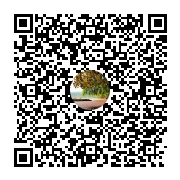英语复习话题阅读素材30:doc全文下载 href="/Upload/UploadFiles//coach_UploadFiles_8112/201311/2013112810260923.doc">高考英语复习话题阅读素材30:doc全文下载
高考英语复习话题阅读素材30
Evaluation by Students
It used to be that if what students had to say about their professors was unprintable, it remained that way. No longer. Formal evaluations of teachers by students, something that would have been viewed as the height of disrespect a generation ago, have become accepted procedure on most campuses. The evaluations are used to improve teaching, to help students choose courses and assist faculty and administrators in promotion and tenure decisions.
People tend to think of teaching as just involving content. But teaching is about getting the knowledge into students' heads and it is harder to find anyone who is a better judge of whether they are learning something than the students themselves. At most universities, students get evaluation forms in the final 15 minutes of the last day of a course and are asked to fill them out anonymously.
In addition to the institutionalized procedures for faculty evaluations, informal course guides are also published and sold by students at some universities. One of the oldest of these guides is the "Confidential Guide to Courses", or the "Confi Guide," put out by the editors the Harvard Crimson. "The first purpose is to be humorous; the second purpose, if one can't be humorous, is to be interesting, and last, we're trying to be informative," said Jonathan Moses, managing editor of The Crimson. "We're not like the CUE Guide," he said, referring to the official university course guide, "They are looking for substance, not style -- a terrible thing."
Here is what the Confi Guide had to say about a course taught by a world-famous Harvard professor. "You will be going to the most expensive theater sow of your life -- a couple of hundred bucks to watch a famous guy stroke his ego in front of 300 students." About another course, the guide says, "They shouldn't have bothered," and adds that in the class, taught by another eminent professor, "Teacher's ability and faculty rank are inversely proportional."
At













